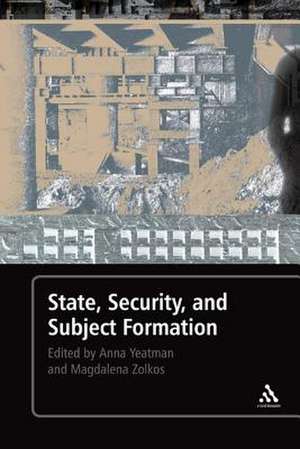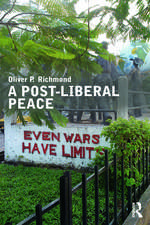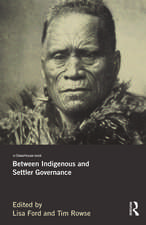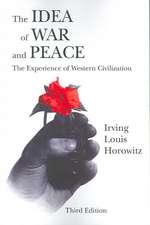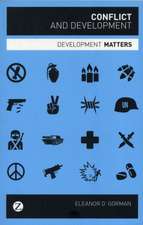State, Security, and Subject Formation
Editat de Anna Yeatman, Magdalena Zolkosen Limba Engleză Paperback – 31 dec 2009
State, Security, and Subject Formation addresses the question of how to secure the conditions for a civil and peaceful life together. It brings together leading scholars to examine democracy from two approaches: peaceful coexistence and the secular state as public authority and the necessity of division between communities of faith that allows for a state that defends the values of the community. This book aims to understand the rationality that informs both approaches, interpreting the subjectivities within each.
To do so, the interdisciplinary, scholarly essays examine 17th century political thought and how it is caught up in debate about the relationship between faith and the state at a time when religious wars are endemic and profoundly destructive. They also provide an in-depth discussion of contemporary 21st and 20th century approaches to the question of security and the issue of subjective capacity for peaceful co-existence.
Civil Order and Politics is the outcome of an intensive cross-disciplinary cooperation and, as such, not only demonstrates the richness of relevant themes and issues, but also brings to the fore challenges and problems associated with civil practice and theorizing of politics. Through its thematic juxtaposition of state, security, and subjectivity within the framework of civil order and politics, the book fills a gap in the contemporary political literature that will be of interest to anyone studying and researching these issues.
Preț: 256.59 lei
Preț vechi: 294.91 lei
-13% Nou
Puncte Express: 385
Preț estimativ în valută:
49.10€ • 51.50$ • 40.87£
49.10€ • 51.50$ • 40.87£
Carte tipărită la comandă
Livrare economică 01-15 aprilie
Preluare comenzi: 021 569.72.76
Specificații
ISBN-13: 9780826442840
ISBN-10: 0826442846
Pagini: 216
Dimensiuni: 150 x 226 x 18 mm
Greutate: 0.32 kg
Editura: Bloomsbury Publishing
Colecția Continuum
Locul publicării:New York, United States
ISBN-10: 0826442846
Pagini: 216
Dimensiuni: 150 x 226 x 18 mm
Greutate: 0.32 kg
Editura: Bloomsbury Publishing
Colecția Continuum
Locul publicării:New York, United States
Caracteristici
Offers critical insights into the very current discussion about civil practice at a moment when the civil idea of the state is both intellectually and politically in crisis.
Cuprins
Chapter 1 State, Security and Subject Formation-an Introduction by Anna Yeatman
Chapter 2 The Man and the Citizen: the Pluralization of Civil Personae in Early Modern German Natural Law by Ian Hunter
Chapter 3 Reassembling Civilization: State-formation, Subjectivity, Security, Power by Robert van Krieken
Chapter 4 Without Exception: Democracy and Sovereignty After Carl Schmitt by Charles Barbour
Chapter 5 Anti-security Personae: from David Dyzenhaus's Human Rights Lawyer to Giorgio Agamben's illuminato by David Saunders
Chapter 6 Doubt, Ambiguity and Subject Formation by Paul Hoggett and Nigel Williams
Chapter 7 The Subject 'At the Gates of the Polis': Theorizing Transitional Civic Order from the Site of Trauma by Magdalena Zolkos
Chapter 8 Self-preservation and the Idea of the State by Anna Yeatman
Chapter 9 Society, State, Security, and Subject Formation: The Emergence of Modern Neutrality Society and the Formation of the Types of Subjects it Requires by Gary Wickham and Barbara Evers
Chapter 10 Anti-colonial Nationalisms: the Case of India by Benjamin Zachariah
Chapter 11 The Sense of Existing and its Political Implications (on François Flahault's 'General Anthropology') by Jeffrey Minson
Bibliography
Chapter 2 The Man and the Citizen: the Pluralization of Civil Personae in Early Modern German Natural Law by Ian Hunter
Chapter 3 Reassembling Civilization: State-formation, Subjectivity, Security, Power by Robert van Krieken
Chapter 4 Without Exception: Democracy and Sovereignty After Carl Schmitt by Charles Barbour
Chapter 5 Anti-security Personae: from David Dyzenhaus's Human Rights Lawyer to Giorgio Agamben's illuminato by David Saunders
Chapter 6 Doubt, Ambiguity and Subject Formation by Paul Hoggett and Nigel Williams
Chapter 7 The Subject 'At the Gates of the Polis': Theorizing Transitional Civic Order from the Site of Trauma by Magdalena Zolkos
Chapter 8 Self-preservation and the Idea of the State by Anna Yeatman
Chapter 9 Society, State, Security, and Subject Formation: The Emergence of Modern Neutrality Society and the Formation of the Types of Subjects it Requires by Gary Wickham and Barbara Evers
Chapter 10 Anti-colonial Nationalisms: the Case of India by Benjamin Zachariah
Chapter 11 The Sense of Existing and its Political Implications (on François Flahault's 'General Anthropology') by Jeffrey Minson
Bibliography
Recenzii
"Security has in recent years been aligned with emergency, border defence, and bare life. Not in this volume, whose contributors turn to an unusual variety of thinkers (from Pufendorf to Nehru, Hobbes and Locke to Arendt and Flahault), and use diverse, multi-disciplinary resources (political theory, psychoanalysis, anthropology, contextual history and conceptual analysis) to take us beyond Schmitt and Agamben. Here, security names the conditions of a civic project of peace and reconciliation, and a citizenship of active enjoyment, both situated in the ample terrain between law and its suspension. The contributions are thoughtful and the collection as a whole pushes the political theory of security in new and welcome directions." -- Bonnie Honig, Sarah Rebecca Roland Professor, Political Science, Northwestern University and American Bar Foundation, author of Emergency Politics: Paradox, Law, Democracy (2009)
'One of the distinctive themes animating this interdisciplinary collection of essays is that what the editors refer to as the fragile character of the 'civic project' - the goal of creating a political order characterized by peaceful coexistence on equal terms for all participants. This theme is explored across a range of historical periods and theoretical approaches, but is also aimed at shedding light on our current political situation. At a time when the idea of the secular state is once again a controversial category, this is a timely and thoughtful collection'. --Duncan Ivison, University of Sydney
"The papers were distributed beforehand, so when the participants convened at the University of Alberta in October 2007, the papers were grist for the roundtable discussions, workshops, and assemblies. By the end of the conference, the papers, originally reflecting such disciplines as philosophy, psychology, law, history, and politics had been woven into a dense fabric of call and response, debate and reference. Among the 11 topics are the pluralization of civil personae in early modern German natural law, anti-security personae from David Dyzanhaus' human rights lawyer to Giorgia Agamben's illuminato, self-preservation and the idea of the state, the emergence of modern neutrality society and the formation of the types of subjects it requires, and anticolonial nationalism as exemplified by India." -Eithne O'Leyne, BOOK NEWS, Inc.
'One of the distinctive themes animating this interdisciplinary collection of essays is that what the editors refer to as the fragile character of the 'civic project' - the goal of creating a political order characterized by peaceful coexistence on equal terms for all participants. This theme is explored across a range of historical periods and theoretical approaches, but is also aimed at shedding light on our current political situation. At a time when the idea of the secular state is once again a controversial category, this is a timely and thoughtful collection'. --Duncan Ivison, University of Sydney
"The papers were distributed beforehand, so when the participants convened at the University of Alberta in October 2007, the papers were grist for the roundtable discussions, workshops, and assemblies. By the end of the conference, the papers, originally reflecting such disciplines as philosophy, psychology, law, history, and politics had been woven into a dense fabric of call and response, debate and reference. Among the 11 topics are the pluralization of civil personae in early modern German natural law, anti-security personae from David Dyzanhaus' human rights lawyer to Giorgia Agamben's illuminato, self-preservation and the idea of the state, the emergence of modern neutrality society and the formation of the types of subjects it requires, and anticolonial nationalism as exemplified by India." -Eithne O'Leyne, BOOK NEWS, Inc.
